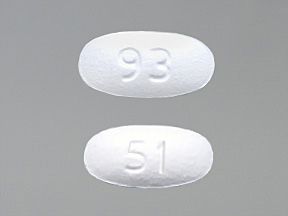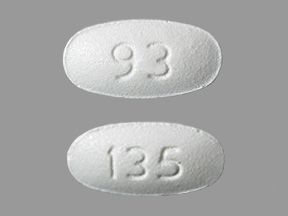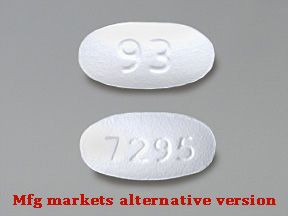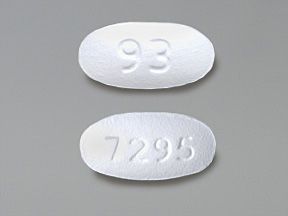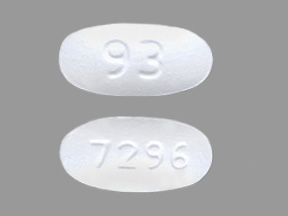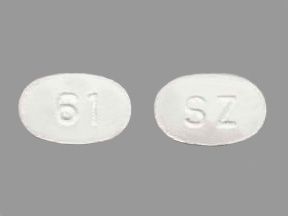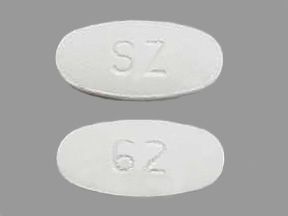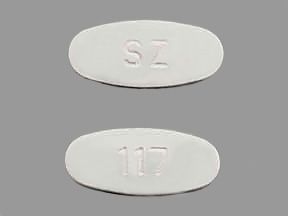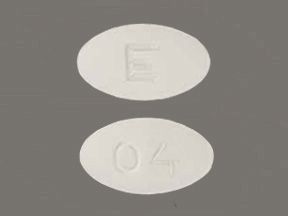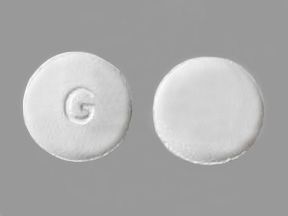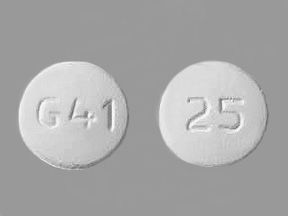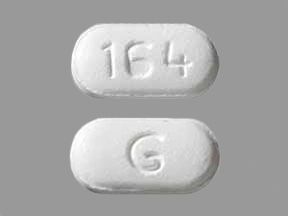Carvedilol is a generic prescription drug that’s used to treat high blood pressure and certain heart conditions. Carvedilol oral tablets are also available as the brand-name drug Coreg.
Carvedilol is specifically used in adults with:
- high blood pressure
- heart failure
- left ventricular dysfunction (a condition in which your heart’s left ventricle doesn’t work correctly) after a heart attack
To learn more about carvedilol’s uses, see the “What is carvedilol used for?” section below.
Carvedilol basics
You’ll take carvedilol oral tablets by mouth. Carvedilol is classified as a beta-blocker.
Carvedilol brand-name versions
Carvedilol oral tablet is a generic medication. The brand-name version is called Coreg.
Note: Carvedilol also comes as extended-release capsules. The brand name of these capsules is Coreg CR. But only carvedilol oral tablets are described in this article. If you’d like to learn about carvedilol’s other form, talk with your doctor or pharmacist.
Carvedilol oral tablet is a generic drug. This means it’s an exact copy of the active drug in a brand-name medication. The brand-name medication it’s based on is called Coreg.
Generic drugs are thought to be as safe and effective as the brand-name drug they’re based on. In general, generics usually cost less than brand-name drugs.
If you’d like to know more about using Coreg instead of carvedilol oral tablets, talk with your doctor. And see this Healthline article to learn more about the differences between generic and brand-name drugs.
Like most drugs, carvedilol oral tablets may cause mild or serious side effects. The lists below describe some of the more common side effects. These lists don’t include all possible side effects.
Keep in mind that side effects of a drug can depend on:
- your age
- other health conditions you have
- other medications you may be taking
Your doctor or pharmacist can tell you more about the potential side effects of carvedilol oral tablets. They can also suggest ways to help reduce these side effects.
Mild side effects
Here’s a list of some of the mild side effects that carvedilol oral tablets can cause. To learn about other mild side effects, talk with your doctor or pharmacist, or read the drug’s prescribing information.
Mild side effects of carvedilol oral tablets will vary based on the condition you’re treating. Mild side effects that have been reported with the drug include:
- dizziness*
- fatigue (lack of energy)
- low blood pressure
- diarrhea
- high blood sugar level
- low heart rate
- weight gain*
- feeling weak
- dry eyes, especially if you wear contact lenses
- sexual side effects, such as erectile dysfunction (ED)*
Mild side effects of many drugs may go away within a few days or a couple of weeks. But if they become bothersome, talk with your doctor or pharmacist.
* For more information about this side effect, see the “Side effect focus” section below.
Serious side effects
Serious side effects from carvedilol oral tablets can occur, but they aren’t common. If you have serious side effects from this drug, call your doctor right away. But if you think you’re having a medical emergency, you should call 911 or your local emergency number.
Serious side effects of carvedilol oral tablets that have been reported include:
- very low heart rate
- very low blood pressure
- worsening heart failure, when your carvedilol dosage is increased or you’re starting the drug
- allergic reaction*
* For more information about this side effect, see the “Side effect focus” section below.
Side effect focus
Learn more about some of the side effects carvedilol oral tablets may cause. In addition to the information below, you can refer to this article about carvedilol’s side effects.
Weight gain
Weight gain is a common side effect of carvedilol. But weight gain was only reported in studies of people taking carvedilol for either heart failure or left ventricular dysfunction. (Left ventricular dysfunction is a condition in which your heart’s left ventricle doesn’t work correctly.)
People with heart failure who have weight gain likely gain the weight because of fluid retention. (With fluid retention, you have a buildup of fluids in your body.) This weight gain could mean their heart failure is getting worse.
Weight gain wasn’t reported in people taking carvedilol for high blood pressure.
What might help
While you’re taking carvedilol, your doctor will monitor your weight.
In some cases, weight gain may occur due to worsening heart failure. If this is the case, your doctor may recommend a different treatment for your heart failure.
If you have weight gain during carvedilol treatment, talk with your doctor. They may be able to help you determine what’s causing the weight change and recommend the best way to manage it.
Sexual side effects, such as erectile dysfunction (ED)
Sexual side effects such as ED (trouble getting or maintaining an erection) are rare but possible with carvedilol.
In studies, ED was only reported in people taking carvedilol for either heart failure or left ventricular dysfunction. (Left ventricular dysfunction is a condition in which your heart’s left ventricle doesn’t work correctly.)
But decreased libido (sex drive) occurred in people taking carvedilol for high blood pressure. In some cases, low libido can lead to ED.
What might help
If you’re having sexual side effects with carvedilol, talk with your doctor. They may be able to recommend treatment to decrease the side effects.
If these side effects are bothersome, your doctor may recommend a medication other than carvedilol for your condition. Talk with your doctor about the best treatment plan for you.
Dizziness
Dizziness was one of the most common side effects in people taking carvedilol during studies.
Carvedilol works by decreasing your blood pressure. If you have dizziness with the drug, it may be a sign that your blood pressure is too low.
What might help
Tell your doctor if you have dizziness while taking carvedilol. You should not drive a car or operate machinery if you’re feeling dizzy.
Your doctor may recommend a lower dosage of carvedilol for you. This may help to decrease your dizziness. They may also recommend a different treatment option for you.
Talk with your doctor about the best way to manage dizziness with carvedilol.
Allergic reactionSome people may have an allergic reaction to carvedilol oral tablets.
Symptoms of a mild allergic reaction can include:
- skin rash
- itchiness
- flushing (temporary warmth, redness, or deepening of skin color)
A more severe allergic reaction is rare but possible. Symptoms of a severe allergic reaction can include swelling under your skin, typically in your eyelids, lips, hands, or feet. They can also include swelling of your tongue, mouth, or throat, which can cause trouble breathing.
Call your doctor right away if you have an allergic reaction to carvedilol oral tablets. But if you think you’re having a medical emergency, call 911 or your local emergency number.
Your doctor will recommend the dosage of carvedilol that’s right for you. Below are commonly used dosages, but always take the dosage your doctor prescribes.
Form and strengths
Carvedilol comes as a tablet that you swallow. It comes in the following strengths:
- 3.125 milligrams (mg)
- 6.25 mg
- 12.5 mg
- 25 mg
Note: Carvedilol also comes as extended-release capsules, but only carvedilol oral tablets are described in this article. Your doctor or pharmacist can provide more information.
Recommended dosage
You’ll take carvedilol oral tablets twice daily. If possible, try to space out your doses by about 12 hours, for example, at 7 a.m. and 7 p.m. Your specific dosage will depend on the condition you’re taking carvedilol to treat.
In many cases, your doctor may start you on a low dose of carvedilol. Then they’ll increase your dose after a few weeks. This is so that your body can adjust to the medication and your doctor can see how your body responds to it.
Questions about taking carvedilol
Below are some common questions about taking carvedilol.
- What if I miss a dose of carvedilol oral tablets? If you miss a dose of carvedilol, take it as soon as you remember. But if it’s almost time for your next dose, it may be best to skip the missed dose and just take your next usual dose. If you don’t know when to take a dose after you’ve missed a dose, ask your doctor or pharmacist.
- Will I need to use carvedilol oral tablets long term? If carvedilol works for your condition, your doctor will likely recommend that you take it long term. Talk with your doctor about the best treatment plan for you.
- How long do carvedilol oral tablets take to work? Carvedilol tablets begin to work as soon as you take a dose. In fact, the blood pressure-lowering effects of the drug are usually seen within 1 to 2 hours after you take a dose. Be sure to take your doses of carvedilol twice each day, as directed by your doctor. This helps the drug work effectively in treating your condition.
Your doctor will explain how you should take carvedilol oral tablets. They’ll also explain how much to take and how often. Be sure to follow your doctor’s instructions. Below are commonly used dosages, but always take the dosage your doctor prescribes.
How to take carvedilol
You’ll take carvedilol oral tablets by swallowing them whole.
You may wonder how many hours are needed between doses of carvedilol. If possible, try to space out your doses by about 12 hours, for example, at 7 a.m. and 7 p.m. For some people, the best time to take carvedilol may be with breakfast and dinner.
Taking carvedilol at about the same time each day can help you remember. And it helps the medication work consistently in your body.
Taking carvedilol with other drugs
In some cases, you may take carvedilol alone to treat your condition. But in other cases, your doctor may recommend that you take certain drugs with carvedilol.
For example, you may start out by taking a different medication to treat high blood pressure. Examples of these medications include lisinopril and losartan. If these medications don’t work well enough to lower your blood pressure, your doctor may recommend adding carvedilol to your treatment plan.
Talk with your doctor about the best treatment plan for you, given your condition.
Questions about taking carvedilol
Here’s a list of possible questions about taking carvedilol oral tablets.
- Can carvedilol oral tablets be chewed, crushed, or cut in half? If you’re having trouble swallowing carvedilol tablets, talk with your doctor or pharmacist. The manufacturer of this drug hasn’t given any recommendations on whether it’s safe to crush or chew the tablets. But some carvedilol tablets are scored, which means they have a line imprinted across them. These tablets can be safely cut in half. Talk with your doctor or pharmacist if you have concerns about swallowing carvedilol tablets or cutting them in half.
- Should I take carvedilol oral tablets with food? Yes, you should take your doses of carvedilol with food.
Questions for your doctorYou may have questions about carvedilol oral tablets and your treatment plan. It’s important to discuss all your concerns with your doctor.
Here are a few tips that might help guide your discussion:
- Before your appointment, write down questions such as:
- How will carvedilol oral tablets affect my body, mood, or lifestyle?
- Bring someone with you to your appointment if doing so will help you feel more comfortable.
- If you don’t understand something related to your condition or treatment, ask your doctor to explain it to you.
Remember, your doctor and other healthcare professionals are available to help you. And they want you to get the best care possible. So, don’t be afraid to ask questions or offer feedback on your treatment.
Find answers to some commonly asked questions about carvedilol oral tablets.
How does carvedilol work? What’s its half-life and how long does it stay in your system?
Carvedilol belongs to a group of medications called beta-blockers.
Their mechanism of action (how they work) is to decrease your heart rate. Beta-blockers also help to relax your blood vessels so that blood can flow more freely through the vessels. This helps to lower your blood pressure and decrease the amount of pressure on your heart.
The half-life of carvedilol is between 7 and 10 hours. The half-life of a drug describes how long it takes for your body to remove half a dose of the drug. It usually takes between
Before a drug is fully cleared, some medication remains in your body. But the amount that’s left may not be enough to treat your condition. This is why it’s important to take carvedilol doses twice daily, or as directed by your doctor.
What should I know about carvedilol vs. metoprolol and Bystolic?
Carvedilol is a generic drug that also comes as the brand-name drug Coreg. It’s a beta-blocker.
Metoprolol is a generic drug that also comes as the brand-name drugs Toprol XL and Lopressor. Bystolic is a brand-name drug that contains the active drug nebivolol. Metoprolol and nebivolol are beta-blockers, too.
All of these medications work in similar ways to decrease blood pressure and heart rate by relaxing your blood vessels.
Carvedilol, metoprolol, and Bystolic are all used to treat high blood pressure. In addition, carvedilol and Toprol XL are used to treat heart failure. Carvedilol is also used for left ventricular dysfunction, which is a condition in which your heart’s left ventricle doesn’t work correctly. Additionally, Toprol XL is used for angina (a type of chest pain). And, Lopressor is used to treat angina and to reduce the risk of death after a heart attack.
Carvedilol and Lopressor are usually taken twice daily. But Bystolic and Toprol XL are usually taken once daily. Carvedilol, Lopressor, and Toprol XL should all be taken with food. Bystolic, on the other hand, can be taken with or without food.
These medications are all considered to be beta-blockers, but they have different dosages and may have different side effects, as well.
If you have more questions about the similarities and differences between carvedilol, metoprolol, and Bystolic, talk with your doctor or pharmacist.
Is carvedilol a blood thinner, ACE inhibitor, or diuretic?
No, carvedilol isn’t a blood thinner, angiotensin-converting enzyme (ACE) inhibitor, or diuretic. (Diuretics are also sometimes called “water pills.”)
Instead, carvedilol belongs to a group of medications called beta-blockers. It works by relaxing your blood vessels and decreasing your heart rate. Like carvedilol, ACE inhibitors and diuretics may also be used to treat high blood pressure or other heart conditions.
Some examples of ACE inhibitors include lisinopril (Zestril) and enalapril (Vasotec). Examples of some diuretics include hydrochlorothiazide (Microzide) and furosemide (Lasix).
In some cases, blood thinners may also be used in people with certain heart conditions. Examples of blood thinners include apixaban (Eliquis) and dabigatran (Pradaxa).
If you have questions about the best medication to treat your condition, talk with your doctor or pharmacist.
Is there a dosage of carvedilol that’s used for anxiety?
Carvedilol is not approved to treat anxiety. But it may be used off-label for this condition. Off-label use of a medication is when a drug is prescribed for a condition other than what it is approved to treat.
Because carvedilol is not approved to treat anxiety, there’s no recommended dosage for the condition.
If you’d like more information about taking carvedilol off-label for anxiety, ask your doctor.
Does carvedilol interact with bananas?
No, carvedilol doesn’t interact with bananas.
Some other medications used for high blood pressure may interact with bananas, which have high levels of potassium. But you’d have to eat a lot of bananas for this interaction to happen. These same drugs may interact with other foods that also contain high levels of potassium. They include oranges, potatoes, leafy greens, and salt substitutes made with potassium.
Drugs that may interact with bananas or other potassium-rich foods include angiotensin-converting enzyme (ACE) inhibitors and angiotensin II receptor blockers (ARBs). These medications can increase your potassium level in the same way as certain foods.
Examples of some ACE inhibitors include lisinopril (Zestril) and enalapril (Vasotec). Some examples of ARBs include losartan (Cozaar) and olmesartan (Benicar).
In some cases, you may be taking an ACE inhibitor or ARB with carvedilol.
Talk with your doctor or pharmacist about foods you should avoid while you’re taking your prescribed medications.
How do you stop taking carvedilol?
Always talk with your doctor before you stop taking carvedilol or any other medications you’ve been prescribed.
It’s very important that you do not suddenly stop taking carvedilol. Doing so can cause serious side effects, such as worsening angina (a type of chest pain), or even heart attack or heart rhythm problems.
If you’re stopping carvedilol, your doctor will likely taper (slowly decrease) your dosage over 1 to 2 weeks. They’ll also probably monitor you while you taper off the medication. Doctors recommend tapering so that your body can adjust to not having the medication.
In addition, your doctor may recommend that you limit physical activity when you’re stopping carvedilol. This will help decrease your risk for possible serious side effects that may occur.
Your doctor will recommend a plan that is safe for you to stop carvedilol treatment. Be sure to talk with your doctor if you’d like to stop taking this drug.
If you have certain heart conditions, your doctor may recommend that you take carvedilol. It’s a prescription drug used in adults with:
- High blood pressure. High blood pressure occurs when your blood pushes too much against the walls of your blood vessels. It may be caused by a buildup of plaque (fatty deposits) inside your vessels, which also increases this pressure. High blood pressure can cause damage to your heart and other organs. And if it’s not treated, it may lead to very serious problems, such as heart attack or stroke.
- Long-lasting, mild to severe heart failure. Heart failure is a condition in which your heart isn’t properly pumping blood throughout your body. With heart failure, your tissues may be getting less oxygen than usual. Heart failure can also lead to serious problems, such as heart rhythm problems. So by treating it, you can decrease your risk for developing more problems resulting from heart failure.
- Left ventricular dysfunction after a heart attack. Left ventricular dysfunction may occur after you’ve had a heart attack. The left ventricle of your heart pumps blood that contains oxygen throughout your body. But with left ventricular dysfunction, it doesn’t work properly. This can lead to heart rhythm problems and other issues. This is why it’s important to treat this condition.
Carvedilol oral tablets can be used in adults to treat any of these conditions. In some cases, you may take carvedilol alone. In other cases, your doctor may recommend that you take other medications with carvedilol to treat your condition.
The drug treats these conditions by decreasing your heart rate and relaxing your blood vessels so that blood can flow more freely through the vessels. This helps to lower your blood pressure and decrease the amount of pressure on your heart.
If you have more questions about the uses of carvedilol, talk with your doctor or pharmacist.
Some important things to talk about with your doctor before starting carvedilol include your overall health and any conditions you may have. In addition, tell your doctor about any other medications that you’re taking.
These considerations and others are described below.
Interactions
Taking medications, vaccines, foods, and other things with a certain drug can affect how the drug works. These effects are called interactions.
Before taking carvedilol oral tablets, be sure to tell your doctor about all medications you take, including prescription and over-the-counter types. Also describe any vitamins, herbs, or supplements you use. Your doctor or pharmacist can tell you about any interactions these items may cause with carvedilol oral tablet.
Interactions with drugs or supplements
Carvedilol oral tablets can interact with several types of drugs. These medications include:
- drugs that affect your heart rhythm, such as:
- the antibiotic rifampin (Rifadin, Rimactane)
- digoxin (Lanoxin)
- amiodarone (Pacerone)
- the organ transplant drug cyclosporine (Gengraf, Neoral)
- beta-blockers other than carvedilol, such as metoprolol (Toprol XL, Lopressor)
- the heart medications verapamil (Verelan) and diltiazem (Cardizem CD)
- certain diabetes medications, including insulin (Humalog, Lantus)
- drugs that lower blood pressure, other than carvedilol, such as:
- clonidine (Catapres)
- monoamine oxidase inhibitors (MAOIs), such as tranylcypromine (Parnate)
This list does not contain all types of drugs that may interact with carvedilol oral tablets. Your doctor or pharmacist can tell you more about these interactions and any others that may occur with use of carvedilol.
Warnings
Carvedilol oral tablets may not be right for you if you have certain medical conditions or other factors that affect your health. Talk with your doctor about your health history before you take carvedilol oral tablets. Factors to consider include those in the list below.
- Respiratory conditions, such as asthma. Carvedilol is not recommended for use in people with respiratory conditions such as asthma. In fact, the drug’s manufacturer lists respiratory conditions as a contraindication for taking carvedilol. This means taking the drug if you have a respiratory condition can increase risks with treatment. Talk with your doctor if you have any conditions affecting your respiratory system.
- Heart conditions, such as AV block, sick sinus syndrome, cardiogenic shock, certain types of heart failure, or very slow heart rate. If you have AV block (a type of heart block), sick sinus syndrome, certain types of heart failure, or a very slow heart rate, you should not take carvedilol. These conditions are contraindications to using carvedilol. This means taking the drug if you have these conditions can increase risks with treatment. Carvedilol is used for heart failure in some people. But it’s possible that heart failure symptoms may worsen when you first start carvedilol or when your dosage is increased. Your doctor will monitor your heart condition during treatment with carvedilol to be sure that the condition isn’t worsening.
- Liver conditions. If you have any liver problems, be sure to tell your doctor before starting carvedilol. If your liver isn’t working properly, your body may not be able to get rid of carvedilol like it should. So you may get too much medication buildup in your body. And this can cause side effects of the drug. In some cases of severe liver problems, your doctor may recommend a different medication for you. Be sure to tell your doctor about any liver conditions you have before you start carvedilol.
- Allergic reaction. If you’ve had an allergic reaction to carvedilol oral tablets or any of their ingredients, you should not take carvedilol. Ask your doctor what other medications are better options for you.
- Diabetes. Taking carvedilol can cause changes in your blood sugar level. It can also decrease symptoms of low blood sugar, such as an increased heart rate. If you have diabetes, this can be dangerous, because it may be harder for you to tell when your blood sugar level is too low. Your doctor may recommend that you monitor your blood sugar level more often than usual while you’re taking carvedilol.
- Peripheral vascular disease. If you have peripheral vascular disease (PVD), tell your doctor before starting carvedilol. This medication can make your symptoms of PVD worse. In this case, your doctor may monitor you more often than usual or recommend a different medication for you.
- Kidney problems. Tell your doctor about any kidney problems you have before you start carvedilol. In rare cases, people with heart failure taking carvedilol may have worsening kidney problems. Your doctor may recommend a different medication for you. Or they may monitor your kidneys more often than usual while you’re taking this drug.
- A tumor on your adrenal gland called a pheochromocytoma. Doctors recommend that people with pheochromocytoma are cautious about taking carvedilol. In some cases, you may need to take another medication, called an alpha-blocker, before starting carvedilol. Be sure to talk with your doctor about the best treatment plan for you if you have pheochromocytoma.
- Overactive thyroid. Carvedilol may decrease symptoms of an overactive thyroid. This means you may not know that you have an overactive thyroid and this can be dangerous if left untreated. In addition, stopping carvedilol suddenly can increase your risk for an overactive thyroid, including a very serious condition called thyroid storm. Tell your doctor about any thyroid conditions you have before you start taking carvedilol. They may monitor your thyroid hormones more often than usual while you take this drug.
- Prinzmetal’s variant angina (chest pain that occurs when you are resting, between midnight and morning). Be sure to tell your doctor if you have Prinzmetal’s angina. Taking carvedilol with this condition may increase your risk for chest pain. Your doctor may recommend monitoring you more often than usual while you’re taking carvedilol.
- Cataract surgery. If you’re having cataract surgery, tell your doctor if you’re taking carvedilol. You may have an increased risk for developing a complication called intraoperative floppy iris syndrome during the surgery. With this condition, your pupil is constricted (smaller than usual), and your iris (the colored part of your eye) becomes floppy and relaxed. Your doctor may need to perform the procedure in a different way than usual if you’re taking this medication.
Carvedilol and alcohol
Before you start taking carvedilol, discuss with your doctor whether or not you should drink alcohol.
Both carvedilol and alcohol can decrease your blood pressure. So drinking alcohol while you’re taking this drug may decrease your blood pressure to an unsafe level.
If you drink alcohol, talk with your doctor to see if there’s a safe amount of alcohol you can drink while you’re taking carvedilol.
Pregnancy and breastfeeding
It’s not known if carvedilol oral tablets are safe to take while you’re pregnant or breastfeeding.
At this time, there’s not enough information available to know if carvedilol may cause problems in a fetus. It’s also unknown if carvedilol passes into breast milk or what effects the drug may have on a child who’s breastfed.
But it’s important that pregnant people have their blood pressure managed. This is because having high blood pressure during pregnancy can harm a fetus.
If you’re pregnant or planning to become pregnant, talk with your doctor before starting carvedilol. If you’re breastfeeding, talk with your doctor about nursing considerations.
Do not take more carvedilol oral tablets than your doctor prescribes. Using more than this can lead to serious side effects.
Symptoms of overdose
Symptoms caused by an overdose of carvedilol can include:
What to do in case you take too much carvedilol
Call your doctor if you think you’ve taken too many carvedilol oral tablets, or if you accidentally took a double dose. You can also call 800-222-1222 to reach the American Association of Poison Control Centers, or use its online resource. However, if you have severe symptoms, immediately call 911 (or your local emergency number) or go to the nearest emergency room.
Costs of prescription drugs can vary depending on many factors. These include what your insurance plan covers and which pharmacy you use.
Financial assistance to help you pay for carvedilol oral tablet may be available. Medicine Assistance Tool and NeedyMeds are two websites that provide resources to help reduce the cost of carvedilol oral tablets.
These websites also offer tools to help you find low-cost healthcare and certain educational resources. To learn more, visit their websites.
Save on your carvedilol prescription with Optum Perks
Save on carvedilol without insurance.
Enter your information:
Location
47201
Dosage
25mg carvedilol (60 Tablets)
Save on your carvedilol prescription
Simply show the Optum Perks coupon at your preferred pharmacy and instantly save without using insurance. The coupon doesn't expire so be sure to save it for use with refills.
Retail price refers to the manufacturer’s published list price and is up to date as of 3/2023. Retail and discounted prices are U.S.-only and can vary based on region and pharmacy. We cannot guarantee that the discounted price listed here will exactly match the price at your pharmacy. Please contact your pharmacy for the exact price.
Optum Perks and Healthline are subsidiaries of RVO Health.
Pricing source:Perks.optum.com

If you have certain heart conditions, your doctor may recommend that you take carvedilol. It’s a prescription drug used in adults with:
- high blood pressure
- heart failure
- left ventricular dysfunction (a condition in which your heart’s left ventricle doesn’t work correctly)
If you have questions about taking carvedilol, talk with your doctor or pharmacist. Here are some questions you may wish to ask during your conversation:
- How can I treat side effects that I may have with carvedilol?
- What other treatment options are available for me if carvedilol is too expensive or doesn’t work?
- What’s the best carvedilol dose and treatment plan for my condition?
- Will getting the COVID-19 vaccine affect my heart condition that’s being treated with carvedilol?
- How much will carvedilol decrease my blood pressure?
To learn more about carvedilol, see this article:
To get information on different conditions and tips for improving your health, subscribe to any of Healthline’s newsletters. You may also want to check out the online communities at Bezzy. It’s a place where people with certain conditions can find support and connect with others.
Q:
Once I start taking carvedilol oral tablets, can I still continue my other medications for my heart condition?
AnonymousA:
It depends on the other medications you’re taking for your heart condition. Some heart medications can interact with carvedilol, so your doctor may need to adjust their dosage or have you stop taking them.
Examples of these medications include:
- Amiodarone. Taking amiodarone with carvedilol can increase the amount of carvedilol in your body. And this could increase your risk for side effects from carvedilol.
- Digoxin. Taking digoxin with carvedilol can increase the amount of digoxin in your body. And this could increase the risk of side effects from digoxin.
- Verapamil and diltiazem. Taking verapamil or diltiazem with carvedilol can cause problems with the electrical signals in your heart. And this can make your heart beat abnormally.
Before starting carvedilol, be sure to talk with your doctor to review all of your current medications. Your doctor can recommend if it’s safe for you to take any of them with carvedilol.
The Healthline Pharmacist TeamAnswers represent the opinions of our medical experts. All content is strictly informational and should not be considered medical advice.Disclaimer: Healthline has made every effort to make certain that all information is factually correct, comprehensive, and up to date. However, this article should not be used as a substitute for the knowledge and expertise of a licensed healthcare professional. You should always consult your doctor or another healthcare professional before taking any medication. The drug information contained herein is subject to change and is not intended to cover all possible uses, directions, precautions, warnings, drug interactions, allergic reactions, or adverse effects. The absence of warnings or other information for a given drug does not indicate that the drug or drug combination is safe, effective, or appropriate for all patients or all specific uses.

